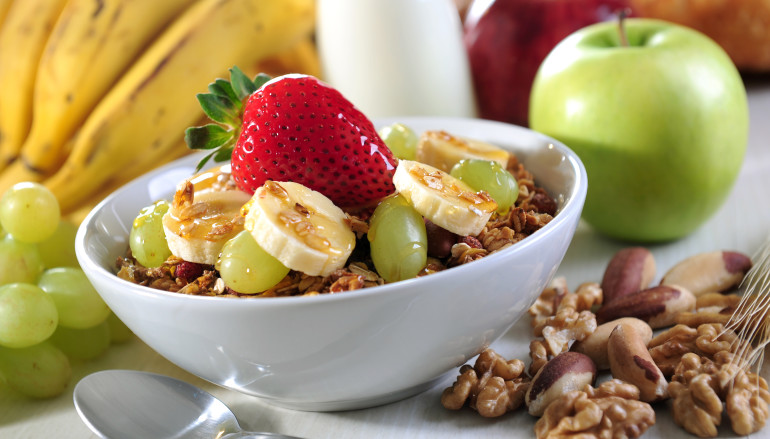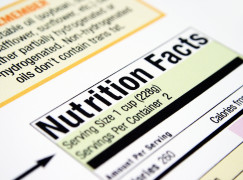

The Importance of Fiber
Fiber is the general term for those parts of plant food that we cannot digest. It is not found in meat or dairy products. Fiber promotes intestinal health, bowel regularity, can benefit diabetes and blood cholesterol levels, and according to some studies, may actually prevent colon cancer. Foods that are high in fiber also assist in weight control.
Needless to say, most Americans do not eat enough fiber. You should aim to consume between 25 and 35 grams daily in order to see the benefits that I have outlined above.
There are two types of fiber. Insoluble and soluble fiber.
Insoluble fiber (cellulose, hemicelluloses, and lignin) make up the structural parts of plant cell walls. These fibers absorb many times their own weight in water. They create a soft bulk and hasten the passage of waste products through the intestines. Insoluble fiber is found in wheat bran, corn bran, rice bran, whole grain cereals and breads, beans and peas, nuts, seeds, and the skins of fruits and vegetables.
Soluble fibers (pectin, gums, and mucilages) are found mainly within plant cells. These fibers form a gel which slows both the stomach emptying process and the absorption of sugars from the intestines. This helps to control blood sugar levels. Some soluble fibers can lower blood cholesterol by binding bile acids and excreting them. More body cholesterol must then be broken down to supply bile acids for emulsification of dietary fats. The best sources of soluble fiber are fruits and vegetables, oat bran, barley, beans and peas, prunes, psyllium, and flax seed.
Rice bran, while not high in soluble fiber, can also lower blood cholesterol. Another good thing about all fibers (except the ones in your pillows, don’t eat those) is that it makes you feel full reducing the calories you consume without feeling hungry aiding the process of losing weight, if that is your goal. Be sure to make your calories count however. Up to 30% of your caloric intake should be fat, the rest being made up of carbohydrates and protein.
Malnutrition can still take place on a full stomach and it is never good for you.






